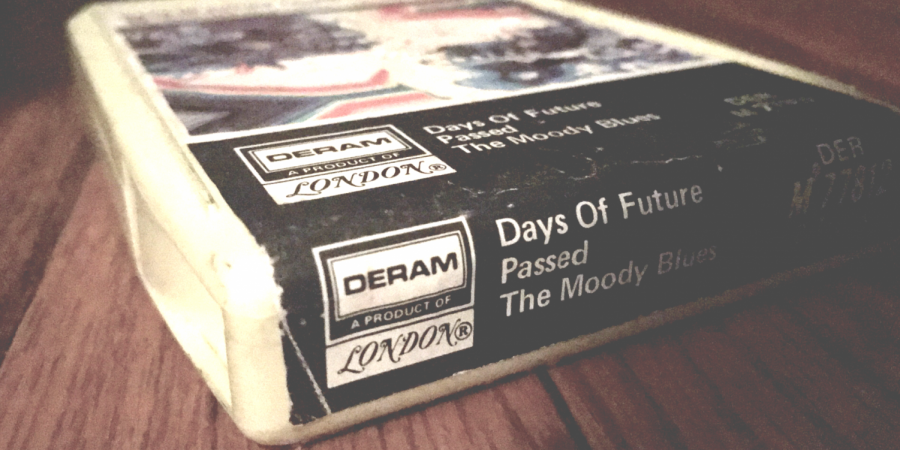The Moody Blues challenges infinity and triumphs
November 11, 2017
It was a year of changes, and as the weather grew warmer it was quickly deemed “The Summer Of Love.” Albums like Sgt Pepper’s Lonely Hearts Club Band opened the eyes and ears of our world, but just as soon as that luscious summer came, it vanished with the cool chill of autumn. While peace and love remained a strong message throughout 1967, it became a turning point. One band took this turning point and jumped up to create an album that would later be deemed the start of a whole new genre of music.
The Moody Blues started out as a heavily rhythm and blues based band on Decca records in the warmer months of 1965. With soon-to-be Wings member Denny Laine at the forefront, they had minor success with their album The Magnificent Moodies, and their debut single “Go Now.” People thought they could rise up to be the next Animals, or Small Faces, but as soon as 1967 rolled around, their sound twisted drastically, as well as their lineup. Deep bass, smooth guitar riffs, and gritty vocals were soon pushed off to the side to welcome The London Festival Orchestra, Justin Hayward and Mike Pinder’s softer vocals, and a hypnotic new tone.
Released 50 years ago, Days of Future Passed was a stepping stone between The Who and Genesis, between The Rolling Stones and Yes, and between Humble Pie and Kansas. The harsh conditions that deemed a song, or band, to be rock ‘n’ roll was changing, and The Moody Blues’ second album pushed it further along the tracks. It was a plea for change, and for a more emotional side to music to come back. Rock ‘N’ Roll was about to become a vehicle to tell stories through, and the world was ready.
“We were planning on trying to build a stage show where the music said it all, and we started to just play it all the way through until the end. That was the breeding ground of what did become “Days of Future Passed,” Graeme Edge, percussionist for the band, said.
Recorded in West Hampstead, London from May to November of 1967 for Decca’s new sub-label Deram, Days Of Future Passed incorporated the emerging sounds of psychedelia that Pink Floyd and The Beatles brought from their releases in the same year, and added a new classical sound to their work. The back of the 1967 US pressing of the album includes a quote from Hugh Mendl, summing up the importance of the album. “The Moody Blues have at last done what many others have dreamed of and talked about: they have extended the range of pop music, and found the point where it becomes one with the world of classics.”
This was before Pink Floyd released their notorious songs that exceeded 15 minutes, so it was strange to see the blocking on the vinyl for this release. “The Afternoon” pushed past the norm of rock songs that had to capture their message in two minutes and 30 seconds, and managed to keep listeners’ attentions peaked for eight minutes.
“I would say that it’s a little work of art that’s trying to express things that are not on the surface … and that evolved. It was the meeting of a classical orchestra and a rock group, seamlessly. That’s what’s lovely about it. It jars when other people do it. I’ve never heard anybody do it as well as it was done on Days of Future Passed. It’s a little gem of a record, and it shouldn’t be discounted,” Hayward said.
The Moody Blues brought the idea of storytelling to the foreground of their music, and they were one of the first to do such a thing on such a large scale. The actual album follows the cycle of a day, starting with the track “The Day Begins.” The album continues through to “Dawn”, “The Afternoon”, and “The Night” while hitting other stops along the way. Other artists would attempt this again in the near future, most notably The Pretty Things with their 1968 release S.F. Sorrow, and The Who’s first full length “rock opera” Tommy the following year.
With its heavy influence on the future of rock ‘n’ roll, the sub genre of prog rock, and its creation of the concept album, its effect on modern day is clearly evident. Bands like Muse, Neutral Milk Hotel, and Radiohead may not have risen to success. Concept albums like Green Day’s American Idiot, Beyoncé’s Lemonade, or The Weeknd’s Trilogy may not have hit the charts.
Since its release 50 years ago today, The Moody Blues’ Days Of Future Passed has caused an avalanche that sparked the evolution of both music and storytelling. And, as another day passes, a new day begins.


